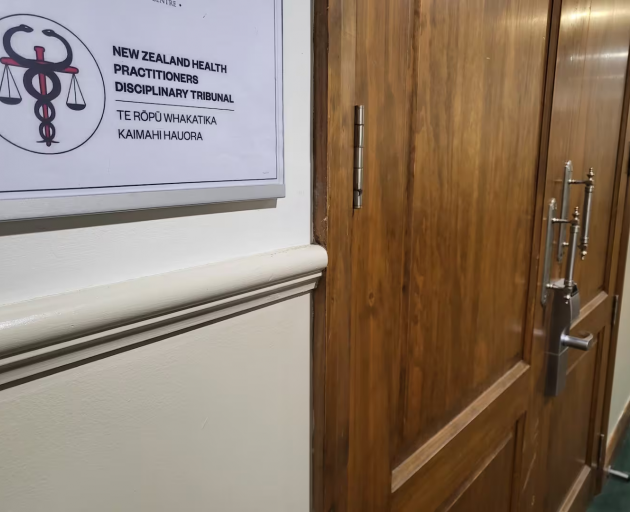
The Health Practitioners Disciplinary Tribunal yesterday found the practitioner, whose name is suppressed, to have committed five instances of professional misconduct against three patients between 2014 and 2019.
The mother of one patient said in a 2019 consult her son presented with suicidal ideation, but the practitioner ignored the symptoms, instead focusing on her son’s drug use.
She said she felt her son was in crisis and was being sent home to die, and three hours later he was in the emergency department having overdosed.
The mother was so concerned with the medical professional’s conduct, she recorded part of it, which was played by the tribunal in chambers yesterday.
At the hearing, defence counsel Adam Holloway said his client accepted that his behaviour qualified as misconduct cumulatively, to the level of negligence, but did not constitute malpractice.
Mr Holloway said he agreed his client acted in a way that was inappropriate to the man who overdosed, but not in a way that was potentially dangerous.
"He’s made mistakes, but he’s made mistakes in the context of trying to do the right thing and get the right care," Mr Holloway said.
Jamie O’Sullivan, representing the director of proceedings, stressed the vulnerability of the patient, but accepted there was no direct line from the misconduct to the man’s overdose.
The other instances Ms O’Sullivan said counted as negligent behaviour were the "disrespectful" ways he communicated with his patients.
A second patient, who the man had been treating for four years, died of a medical event in 2018, the tribunal heard.
After his death, the man’s mother found her son’s clinical notes where the professional spoke of his dislike for the mentally unwell patient.
The mother said she was appalled at the way the practitioner had characterised her son and lamented how it would have felt for her son to read the notes when he was alive.
During a consultation in 2016, with a third patient who was presenting as mentally unwell, the professional told her he would not treat her unless she looked him in the eye.
He also told her if she wanted to keep crying, she should leave, Ms O’Sullivan said.
The woman said after that appointment she "came out more damaged than when she went in" and that the comments discouraged her from seeking further help.
In his clinical notes, the practitioner described her as bursting into "rather melodramatic tears".
Ms O’Sullivan said the man knew there was a chance his "vulnerable" patients would read his notes and that it could cause them to disengage with medical services.
"[He] knew ... the risk of writing and behaving that in that way and he ran that risk anyway," Ms O’Sullivan said.
In the hearing, the professional apologised to the patients and their families and said he had changed his behaviour since the complaints.
He said he had become less challenging of his clients and that he no longer impressed his opinions and perspectives on them.
He also said the language in his notes had changed and he no longer used disparaging words like "obnoxious".
The hearing will continue today where the professional’s penalty and permanent name suppression will be considered.
The facts
Patient A
• He described the patient in clinical notes as "unpleasant" and made his dislike for the patient well-known.
Patient B
• During a consultation told her he did not like those who did not make eye contact with him and he would not treat her until she did.
• Told her to stop crying.
• In clinical notes referred to her crying as "melodramatic tears".
Patient C
• During an appointment said he could not help him and that it was "his job" to get better.
• Ignored the patient’s suicidal ideation, blaming his client’s drug-use for the symptoms.
Where to get help
Need to talk? 1737, free 24/7 phone and text number
Healthline: 0800 611-116
Lifeline Aotearoa: 0800 543-354
Suicide Crisis Helpline: 0508 828-865 (0508 TAUTOKO)
Samaritans: 0800 726-666
Alcohol Drug Helpline: 0800 787-797
General mental health inquiries: 0800 443-366
The Depression Helpline: 0800 111-757












